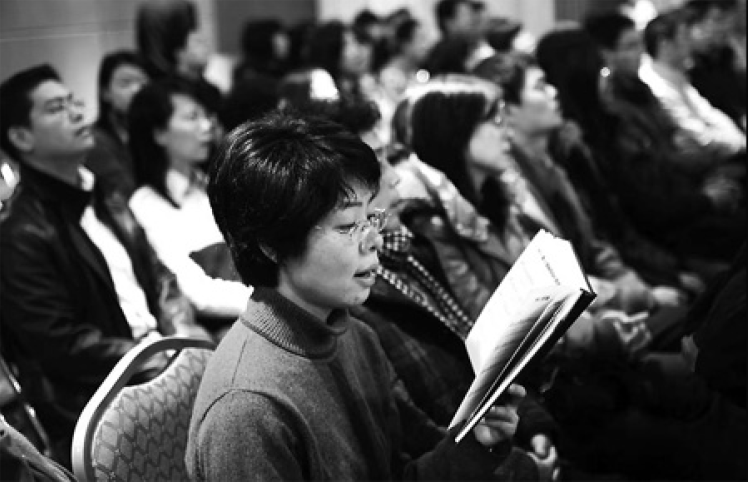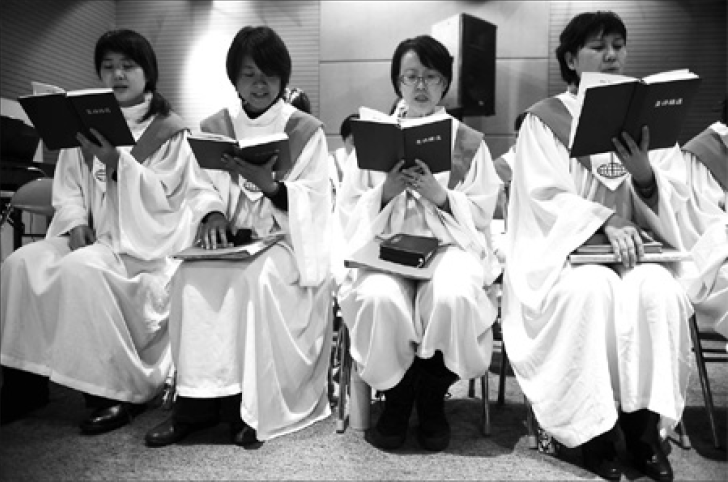China’s state media recently reported that the house churches are thriving because churchgoers are drawn by smaller congregation and the authorities have a more tolerant approach towards them.
According to a report published Wed., China Daily revealed the timeline of the development of Shouwang (Watchtower) Church in Beijing and interviewed several people on the reason why they attend house churches and experts on the reasons for the house churches’ growth.
Jacob Sun, a 38-year-old house churchgoer, told China Daily that the increase in house churches is partly due to lack of space at official churches. Sun spoke on condition of being identified only by his surname and English first name, instead of his full Chinese name.
“Many of our practical needs, which are not satisfied at official churches, are well catered to at house churches,” said Sun, who is also a philosophy professor at a university in Beijing.
Ever since he was baptized in 1999, he attended the Three Self churches for five years, but later shifted to house churches with the main reason being the overcrowding at the Three Self churches.
“Thousands of people gathered in the Three Self churches for Sunday service and sometimes you could barely hear anything,” said Sun, according to China Daily. “The congregation could hardly be considered intimate at that size.”
In Beijing, there are more than 50,000 Christians, but only 17 Three Self churches, which factors out to one church for every 3,000 believers, according to a study on China Christianity in 2008 by Duan Qi and Tang Xiaofeng, from the institute of World Religions at the Chinese Academy of Social Sciences, reports China Daily.
Abel Li, a manager with a technology company in Zhongguancun, told China Daily that when the congregation size is smaller, as it is at most house churches, it is easier to develop a close rapport with fellow church goers; he would have more opportunities to communicate and build relationships with others before and after services and in fellowships such as those dedicated to common occupations.
Moreover, some experts said that the reason for the growing number of house churches could be a more tolerant approach by authorities.
“The authorities have a much more open attitude toward discussion and debate on house churches,” said Cao Zhongjian, an expert on religion in China at the China Academy of Social Sciences, in an annual report on China’s religions in 2009.
According to the report, the more open attitude has allowed some house churches to establish permanent venues; in the past, many often had to continually shift location, jumping from office buildings to canteens to small apartments.
Last Aug., one of few house churches with over a thousand members in Beijing, Shouwang Church, was forced to terminate their lease to their office used for gathering, because the landlord were reported by have been pressured by the authorities, according China Aid Association, a religious freedom group focused on house churches in China.
Since the church had tried to hold gatherings at offices through leases, but their landlord would be pressured by the public security bureau to terminate their contract. As a result, the church has decided to secure a property of their on which to build their church.
While waiting for the negotiation results of buying the land, the church decided to hold outdoor services each week since no public space can accommodate their needs. While it snowed and the temperature was below zero degree, the choir sang praises and the pastor delivered the sermon to the crowd of over 500 people.
This year, Shouwang Church will have a permanent venue to hold services. It is reported that they will complete the church building by the end of this year.
While progress is shown on the growing tolerance by the authorities, the state-media reported that despite their growth house churches in Beijing continue to operate in gray area; despite China’s constitution and international convention that allows for freedom of religious belief, there is currently no law legitimizing house churches in China.
House churches have already been attempting to officially register with the authorities, but their applications were denied because their clergyman had not trained under the Three Self system, reported China’s official state-media.
There are at least 50 million house church Christians in China, with some estimates saying the number is as high as 100 million.
China’s constitution states that citizens have freedom of religion, but in practice, the right to worship is restricted to religious institutions approved by the government. Protestant Christians can only legally worship in churches registered with the government’s Three-Self Patriotic Movement.
Christians who refuse to worship in government-sanctioned churches attend “underground” or “house” churches. The number of Christians who worship in house churches far outnumbers those who attend registered churches.
In spite of continual reports of government crackdown on house churches, there has been progress in China’s respect of religious freedom in recent years. The U.S. State Department removed China from its human rights blacklist in 2008, and Open Doors has dropped China from its top 10 list of the world’s worst Christian persecutors for the past two years.
In the 2010 World Watch List, China is ranked No. 13, down from No. 12 in 2009.









